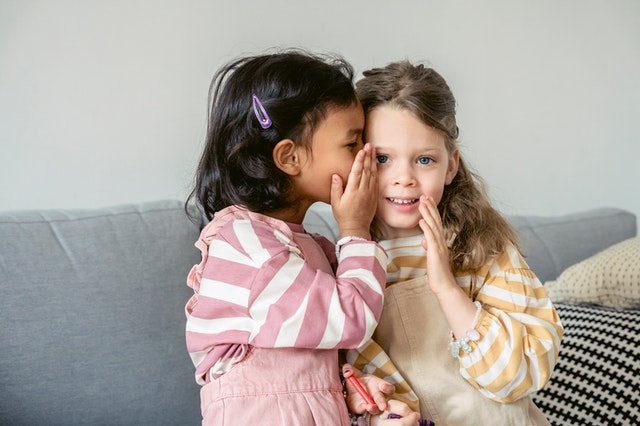Table of Contents
It is well documented that social isolation is bad for our mental health and, for many, this has been the high price of lockdown. Covid loves a party and those who love partying have been stuck at home for much of the pandemic as a result.
Social distancing has forced us all to take a step back from our friendships. With restrictions being lifted, social anxiety has returned to being a significant mental health issue which affects even the most confident to some degree. For some, it’s a passing discomfort during an awkward conversation. For others, it’s a debilitating condition which can be so overwhelming that any social interaction is terrifying.

Self-consciousness is deeply embedded psychologically and starts when we first begin to notice the way others react to us. Acceptance and approval are genetically hardwired necessities. Anyone cast out from their community in primaeval conditions would be killed by predators or starve.
School friends
As well as learning the three Rs, primary school children experience rapid development of behavioural skills which determine their position in the social hierarchy throughout their lives. Friendships formed at this stage are often transitory because of other developmental changes. Most children will have their feelings hurt by friends by the time they reach adolescence. This is an essential part of learning resilience and adaptability. The social landscape is rarely stable, influenced as it is by the multiple personalities in any friendship group.
Most children will also have encountered bullying behaviour. This can be a nasty shock for those raised with the Christian values of ‘do as you would be done by’ and ‘turn the other cheek’. The idea that other people will be nice if you are kind and caring can be shattered by the casual cruelty of a bully who will only go for the softest targets.
And bullying is learned behaviour. Someone with bigger, older siblings who pick on them will have been on the training course and will take out their classmates. Whilst smacking is no longer considered good parenting, children can still be bullied by overbearing parents who rule by fear. So bullies are victims too.
During adolescence, the need to belong and fit in is powerful. Peer approval and acceptance is far more influential at this stage than the guidance of parents, teachers or other authority figures. This is why it is so difficult for schools and parents to intervene in an effective way when a child is being bullied or has social anxiety because of exclusion or conflict with their peers. It’s also the reason why bullying doesn’t stop when we leave school. Look around any workplace and you’ll find examples of bullies getting their own way.
Friends for life
By adulthood, the harsh lessons of those early years are embedded in our beliefs about ourselves and continue to influence our reaction to the behaviour of others. This means that none of us have intact self-esteem and friendships can be a minefield of insecurities. They are also essential to our well-being and mental health. A good bunch of mates is about the best therapy anyone could wish for.
Restricted human contact has created more dependency on social media which doesn’t nurture the same connection as hanging out with friends and fuels ‘FOMO’ or fear of missing out. This of course adds to our social isolation. For many, it has also been an opportunity to reflect on which friendships are important and to focus on those. It’s wise to periodically audit friendships to weed out those which are toxic and be cautious around ‘frenemies’ who may not have your best interests at heart.
Social Isolation and its affects
Sufferers of social isolation are often lonely and feel disconnected from others. Living alone, losing loved ones, or experiencing discrimination cause social isolation and can have a significant impact on an individual’s mental and physical well-being. Studies show social isolation increases the risk of depression, anxiety, and suicide, as well as physical health problems such as heart disease and stroke.
Hypnotherapy helps the anxious or insecure overcome social isolation by boosting confidence and overcoming critical beliefs which might hold them back from making friends. Hypnosis is a state of deep relaxation and heightened focus that makes it possible to challenge negative thoughts and behaviours that contribute to feelings of isolation.
Under hypnosis, changing the internal narrative of someone who is too scared to walk into a room and say hi to a stranger is possible through simple mental rehearsal techniques. Instead of anticipating rejection or ridicule, they can look learn to look forward to being welcomed and accepted. This builds self-confidence and helps them pluck up the courage to connect with others.
Grief and loss contributes to social isolation as it takes time to adjust to being without a loved one, particularly if they were a close friend or partner. Hypnotherapy helps deal with the emotional fallout of grieving and supports changes which will enable the sufferer to start to rebuild their life.
Human beings are social creatures. In primitive conditions, being banished or cast out of a community meant certain death. Our need for support, companionship and love are hardwired in our DNA. Approval and acceptance are vital for emotional wellbeing and those who shy away from social contact are more likely to be both physically and mentally unwell and have a lower life expectancy. Hypnotherapy can help the socially isolated find the confidence to get out and about and live life to the full.
